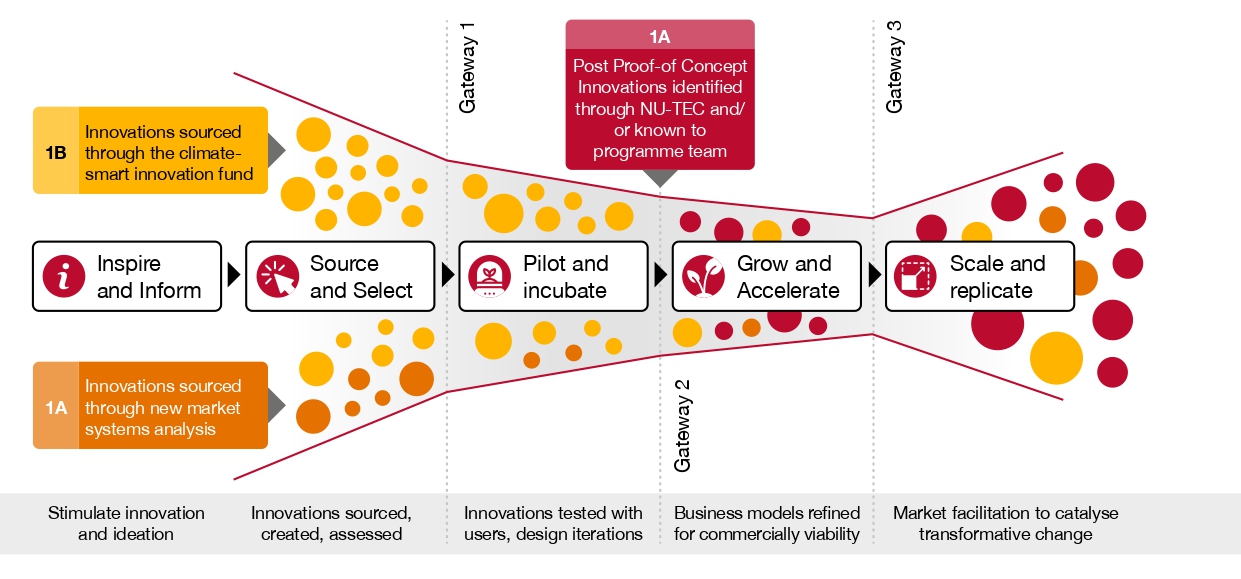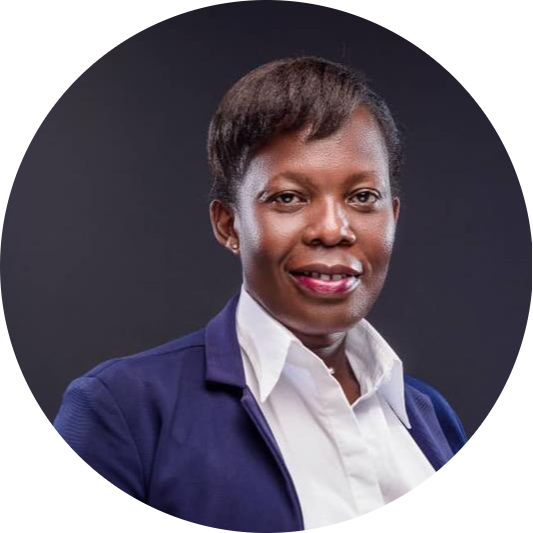
In May 2023, we spoke with several actors. CSJ was taking a market systems approach, so we needed to engage the private sector, government, development organisations, media and smallholder farmers to get their insights on what we were planning to do. We wanted to validate the assumptions we had and understand the constraints faced by women and refugees. We also wanted to identify solutions that would address the needs of smallholder farmers in relation to the climate challenges they face.
So, we gathered information which we analysed and grouped into different themes. That information confirmed our earlier thinking around framing support using the private sector-led approach. It also confirmed and provided additional insights into how we would ensure smallholder farmers access adaptive climate smart inputs for crops and livestock.
Our earlier thoughts around post-harvest service handling centred around promoting green post-harvest handling. During our discussions with stakeholders, it became apparent that it wasn't only supposed to be about green post-harvest handling but promoting practices that are already being used by the smallholder farmers and slowly progressing them to green post-harvest handling. It also became apparent that the market was not ready for the preservation of fresh fruits and vegetables – an area that we had anticipated working in. We dropped our thoughts on cooling houses because research revealed that the market was not ready, and we needed to first set the foundation.
We planned to deepen and strengthen the Commercial Agent model, which was implemented under the Northern Uganda - Transforming the Economy though Climate Smart Agribusiness - Market Development (NUTEC - MD). We wished to encourage more market actors to adopt it in their business models. Insights from our inception phase studies revealed that there were a few things that needed adjustment before full-fledged scaling, so we paused scaling and chose to continue with adjusting the model including providing linkages for more service offers by the Commercial Agents.
Trade was one of the areas that we had earlier proposed but had to drop. While it is a critical part of our work, we realised that there were elements of it covered across our work on promoting access to inputs, and on the Commercial Agent model. That was not the only sufficient reason for us to drop it. That decision was highly motivated by the realisation that there were already several trade programmes being implemented in northern Uganda. We did not intend to position CSJ, as a trade programme. We are now leveraging the efforts made by the other trade programmes to improve market access for the SHFs we are working with.
Another workstream that we proposed was improving women’s access, and by access, we mean women accessing resources, products and services that enable them to improve their participation in agriculture, either as producers or as entrepreneurs. This piece of work would address time constraints that women face because of domestic work and childcare. In May 2023, we thought we would centre the work around improving childcare services but when we spoke with several stakeholders, we realised that it wasn't only childcare that was a barrier to women’s participation in agriculture. There was the burden of domestic care, as well as the access to networks to access information on products or services that was limiting their participation. We were then able to broaden our scope.
We were also critically thinking about how to improve agency for women - improving their ability to make decisions on resources that they gain from participating in the market and their ability to protect these resources. We thought through private sector approaches to address social norms, acknowledging that social norms can limit their participation in agriculture and affect how they utilise the benefits they generate after participating in that market. Of course, we are always conscious of issues of gender based and domestic violence that can affect the utilisation of those resources. Our earlier thoughts around this workstream were around strengthening the approaches used by the civil society. However, we realised that these were not the only options, and we could explore other areas. This was a thin area knowing that not many programmes are focused on using private sector approaches to address social norms. That is a challenging area but one that continues to motivate us. Insights emerged during our research that informed how we could work better with refugees. Our initial focus was on the production side, but we have broadened that scope, to look at refugees as entrepreneurs, consumers and service providers. Doing so has helped us to design interventions that will empower refugees and host communities.
And finally, a critical and final piece of learning that greatly informed our approach, was the realisation that media would be instrumental in the successful delivery of this project and the uptake of new approaches and technologies. The response from the media fraternity was phenomenal and work is already underway to implement.
So that’s a quick look at what’s been happening with the market systems work under the project. If you want to read more of my reflections on the journey so far and some advice on how to navigate the start of a demanding project, check out a recent interview I did with our Communications Lead, Josephine Karungi.
